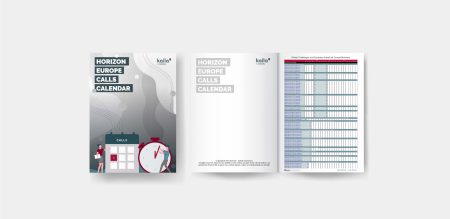
Opinion
SUSTAINABLE SOLUTIONS
What makes the Circular Biobased Europe (CBE) initiative appealing to plastic companies?

Juan José Candel
Responsible of European Projects at the Valencia office
BATTERIES
We are still in time: Europe works to achieve its strategic autonomy in the entire battery value chain.


Senior Innovation Strategy Consultant
Batteries are a key element in the transition to a carbon-free economy as they facilitate the integration of renewable energy (especially photovoltaic and wind) in the network and allow the electrification of transport. Energy storage is crucial for Europe.
The European industry is highly competitive in the automotive and energy sectors. However, world production of battery cells is dominated by China, producer of 61% of lithium-ion batteries (those currently used for electric vehicles), 21% of batteries are produced in other Asian countries (Korea and Japan) and 10% come from the United States.
European Gigafactories
Today, automotive manufacturers are asking for better and cheaper batteries, but Europe cannot provide them, and European car manufacturers are forced to go to the Asian market. There is a critical productive problem; if we are to meet the expectations of the demand for batteries by 2030 and 2050: we urgently need “gigafactories”. Although it is evident that we are late, the good news is that there is consensus and commitment from all the key actors to correct this situation: without European batteries, our leading industrial sectors are at risk.
In addition, to achieve better performance and push for more competitive batteries in terms of price and durability, the strategy is to act in a coordinated manner integrating the entire value chain and life cycle: from research into advanced Li-Ion batteries and in post-Li-Ion technologies, through strategic access to raw materials and second-life batteries, and ending with business investment, financial support and knowledge generation. Although it is always difficult for three points to form a straight line, it seems that this time the European Commission, the research sector and industry have aligned.
Alliances and necessary platforms
A first milestone in European battery development was achieved with the formation of the EU Battery Alliance, launched by the European Commission in 2017 as a joint initiative led by European industry players to avoid European dependence on the supply of batteries and to recover lost ground. The EU Battery Alliance joins about 260 agents, coordinated by EIT InnoEnergy, and large investments have already been announced, with the support of the EIB (European Investment Bank), of both battery and raw material processing and recycling production plants (Strategic Action Plan on Batteries).
The next milestone has been the launch in 2019 of the ETIP batteries (European Technology and Innovation Platform on Batteries), whose main purpose is similar to that of the ETIP SNET: to support the key agents of the sector, in industry and in research, for the design of innovation strategies, in this case in batteries. ZABALA participates contributing its experience in the management of European technology platforms and in the dissemination and communication.
Good experiences
This positive dynamic has been reflected in the publication of different specific topics on batteries (BAT) in HORIZON 2020. In the BAT calls of 2019, ZABALA already supported two of the successful proposals, helping the two consortia to build their proposals and obtain € 10m.
Next opportunities
Now, in 2020 we found 8 new BAT topics with a total budget of € 132 million, in two calls: Next Generation Batteries, and Technologies for Future Batteries, and it is relevant to know that the latter be start of a 10 year large scale Research Initiative that is being defined thanks to the Battery 2030+ project https://battery2030.eu/
|
DATE |
TOPIC |
BUDGET M€ |
|
Open: 9 JUL 2019 Deadline: 16 JANUARY 2020 |
LC-BAT-12-2020 (RIA) |
20 |
|
LC-BAT-12-2020 (RIA) |
10 |
|
|
LC-BAT-12-2020 (RIA) |
10 |
|
|
LC-BAT-12-2020 (RIA) |
2 |
|
|
Open: 3 DIC 2019 Deadline: 21 APRIL 2020 |
LC-BAT-12-2020 (RIA) |
40 |
|
LC-BAT-12-2020 (RIA) |
20 |
|
|
LC-BAT-12-2020 (RIA) |
20 |
|
|
LC-BAT-12-2020 (RIA) |
10 |
|
|
TOTAL |
132 M€ |
As Thore Sekkenes (European Battery Alliance) clearly stated last September 12 in the European Batteries SUMMIT organized by CIC EnergiGune, we are not in a normal scenario of competition and market: we are in a critical moment in which it is necessary to work and cooperate together in Europe, share information, share R&D, knowledge and compete together in a globalized market.
At ZABALA we are aware of the importance of the moment we live in the construction of a strong European battery ecosystem, and we aspire to continue with our role as facilitators and connectors, both in Horizon 2020 and in the next Horizon Europe.
Author: Juan Cristobal García
Senior Consultant on R&I and expert on Energy and Cities

Pamplona Office
Senior Innovation Strategy Consultant

Opinion
SUSTAINABLE SOLUTIONS

Juan José Candel
Responsible of European Projects at the Valencia office

Opinion
Defence

Margherita Volpe
Security, Space & Defence Knowledge Area Leader

Opinion
DECARBONISATION

Alberto González Cubillo
Innovation Consultant in Aviation field

News
ZABALA INNOVATION

Opinion
HORIZON EUROPE

How to build the batteries of the future

Publication
CALENDAR
Through Kaila, our smart platform, we are launching the 'Horizon Europe Calendar', a basic working tool to plan your participation in the HEU calls
The important thing is not to keep moving, but rather to know in which direction to go. Our 37% success rate proves that we know how to guide our clients.
This website uses cookies so that we can provide you with the best user experience possible. Cookie information is stored in your browser and performs functions such as recognising you when you return to our website and helping our team to understand which sections of the website you find most interesting and useful.
Strictly Necessary Cookie should be enabled at all times so that we can save your preferences for cookie settings.
This website uses Google Analytics to collect anonymous information such as the number of visitors to the site, and the most popular pages.
Keeping this cookie enabled helps us to improve our website.
Please enable Strictly Necessary Cookies first so that we can save your preferences!
This website uses the following additional cookies:
(List the cookies that you are using on the website here.)
Please enable Strictly Necessary Cookies first so that we can save your preferences!